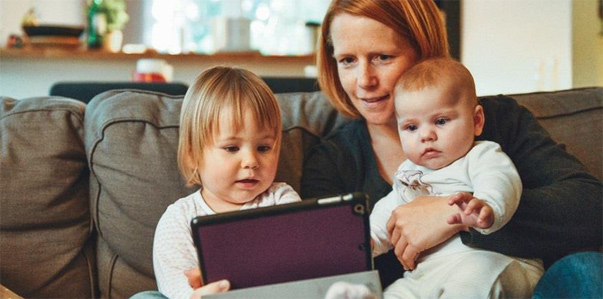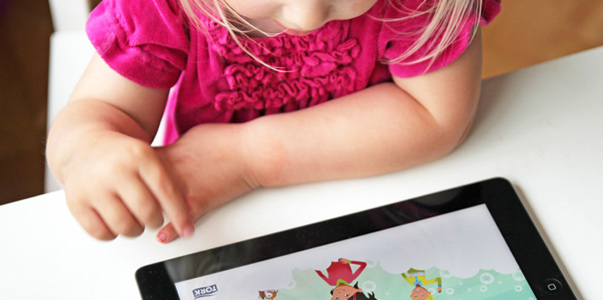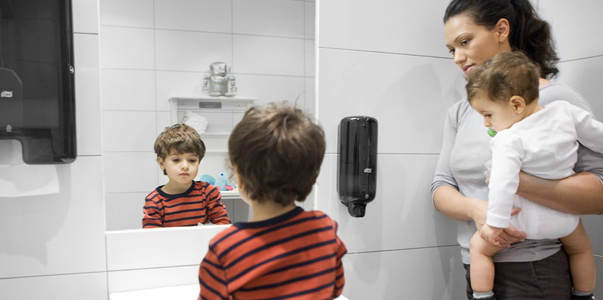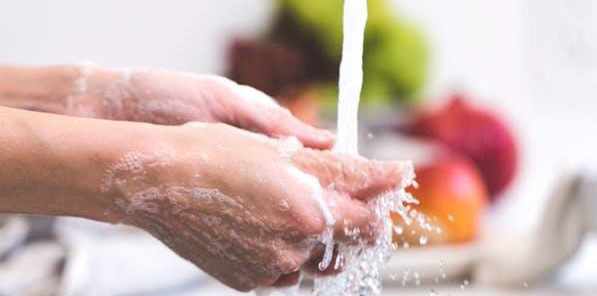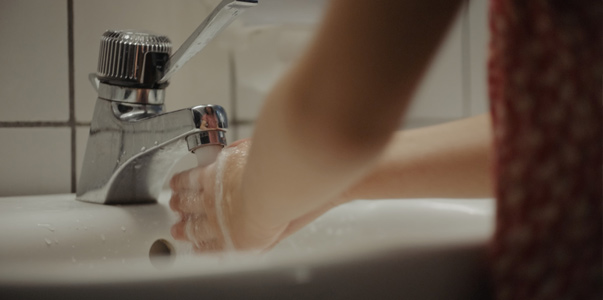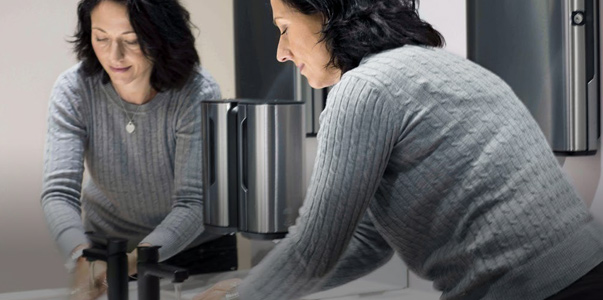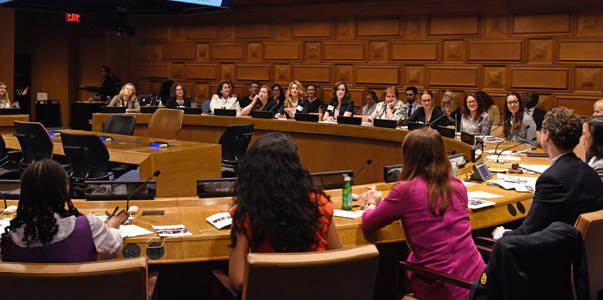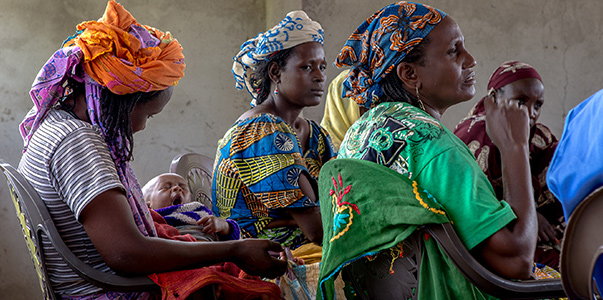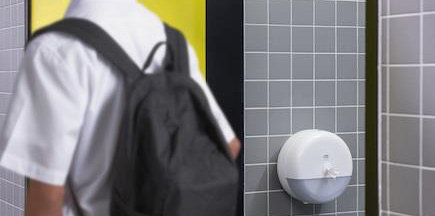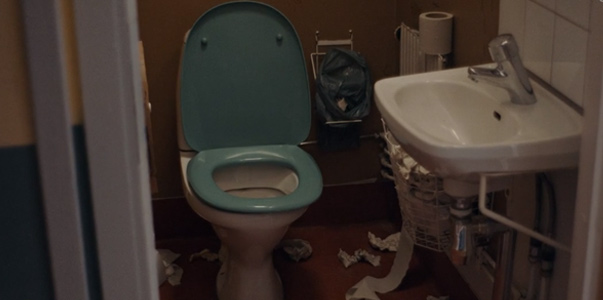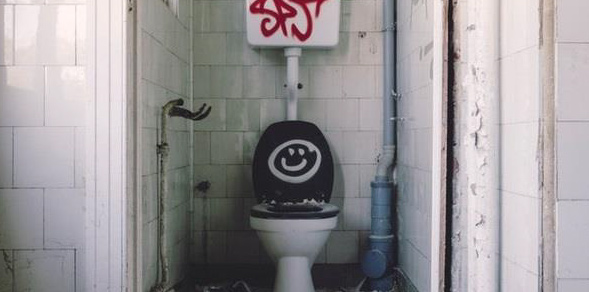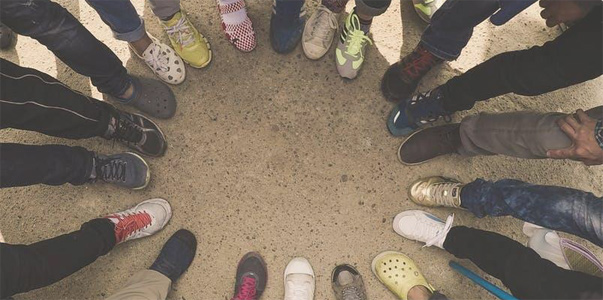
Recommended
Results
No results for your query – please adapt the filters above to get your customized charts.
Hygiene worry varies greatly between markets
Hygiene WorryIndia and Mexico are by far the countries with the highest “hygiene worry”. Almost 3 in 4 in these countries say that they worry often or always about becoming ill due to poor hygiene. Only 4% and 7% say that they never worry. The contrast is stark when compared to the Netherlands where more than half (53%) never worry.
Q: How often are you worried about becoming ill due to poor hygiene?
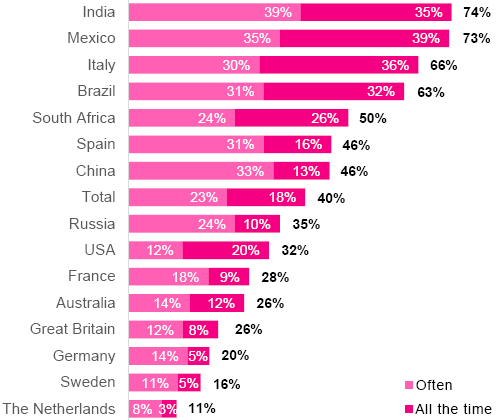
Investing in hygiene for life
Hygiene of particular importance to the younger part of population
Hygiene WorryHygiene and hygiene worries clearly preoccupies more young people (under 40). Hygiene is an integral part of your identity when coming into adulthood and becoming a parent naturally makes you more aware of the risk of infection.
Q: How often are you worried about becoming ill due to poor hygiene?
“Worry Often or Always about becoming ill due to poor hygiene”
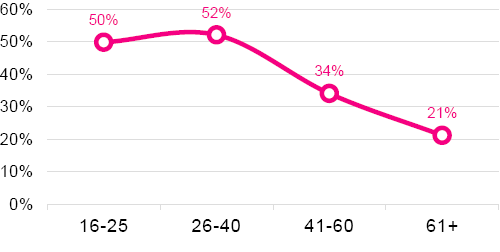
Ensuring a good foundation for the next generation
Lacking hygiene limits the lives of 7 in 10 people in our surveyed markets
Effects on public lifeGlobally, 7 in 10 (66%) people have refrained from one or several activities because of concerns about hygiene levels.
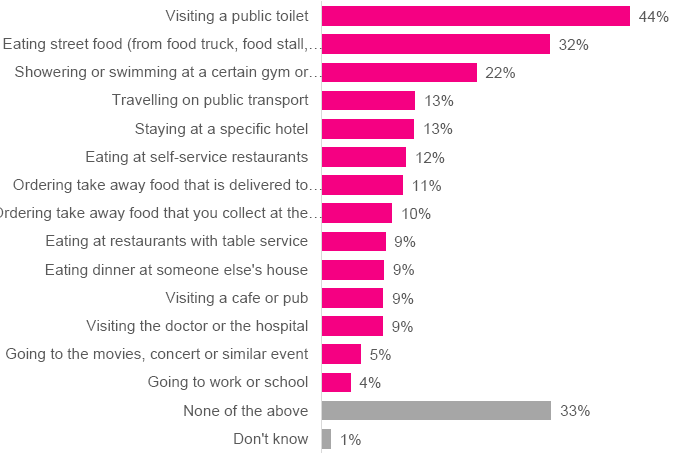
Q: Have you recently decided NOT to do any of the following activities due to the fact that you were concerned about the lack of hygiene and cleanliness?
Hygiene (or lack of) an especially common barrier to the development of the food truck scene in some markets…
Effects on public lifeHave recently refrained from: Eating street food (from food truck, food stall, etc)
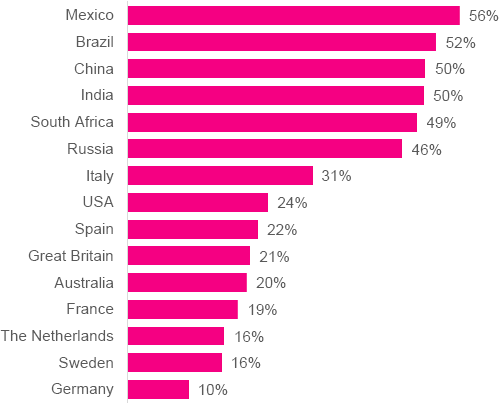
Q: Have you recently decided NOT to do any of the following activities due to the fact that you were concerned about the lack of hygiene and cleanliness?

4 in 10 have turned down a food establishment because of dirty toilets and lack of hand hygiene products
Effects on public lifeWorry about the overall level of hygiene and about the staff’s personal hygiene are the most common reasons for not eating or ordering food from food trucks and restaurants. But more than 4 in 10 also name toilets and lack of hand hygiene products as a barrier.
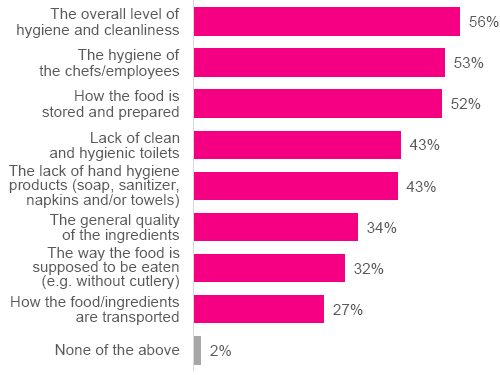
Base: Have refrained from eating at restaurant etc. and/or ordering food (see previous slide).
Q: You said that you have refrained from ordering food or eating at a restaurant because you were concerned about the lack of hygiene and cleanliness. What aspects were you worried about? Filter: Refrained from eating at restaurant etc.

4 in 10 parents often worry about their childrens’ health connected to hygiene
Effects on public lifeLarge differences between markets in worry about your children becoming ill due to poor hygiene. 8 in 10 in Mexico but not even 1 in 10 in the Netherlands
Q: How often are you worried about your children becoming ill due to poor hygiene? Filter: Has children
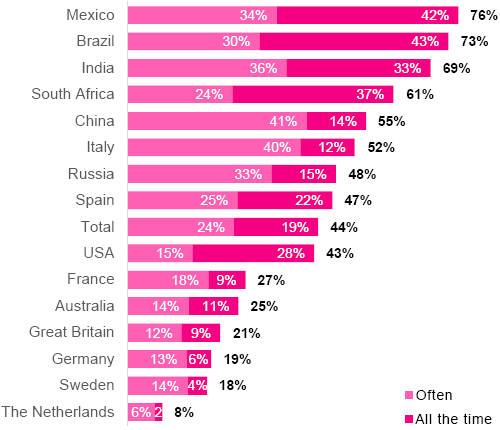
Playfulness – key to establishing good hand hygiene practices
1 in 3 parents have actually kept their children away from social activities due to hygiene worries
Effects on public life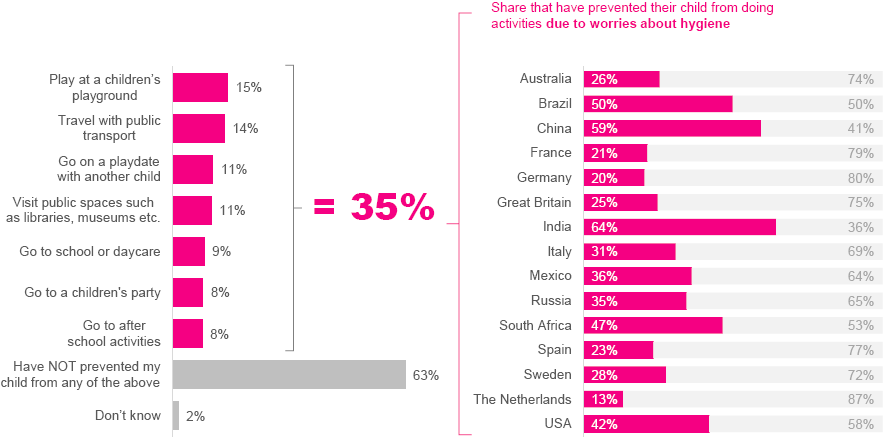
Q: Have you prevented your child from doing any of the following because you were concerned about the lack of hygiene and cleanliness? Filter: Has children
Ensuring a good foundation for the next generation
Far from everyone wash their hands when they should…
Hygiene Habits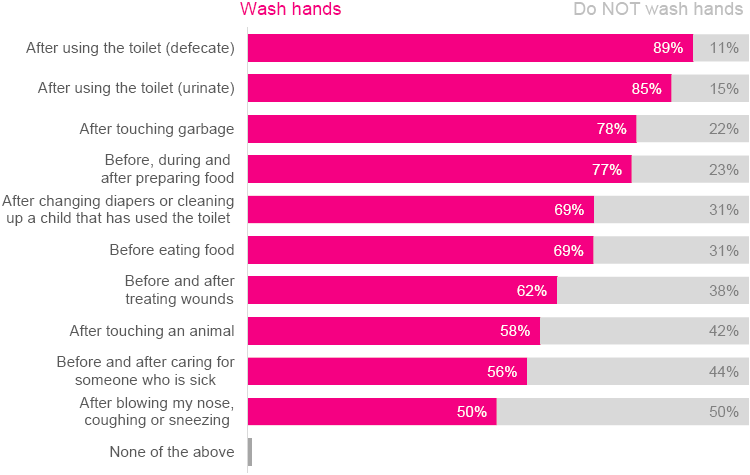
Q: In which of the following daily situations do you wash your hands?
Investing in hygiene for life
Women wash their hands much more frequently than men
Hygiene HabitsMen: Average number of times per day
Global avg.: 7.3
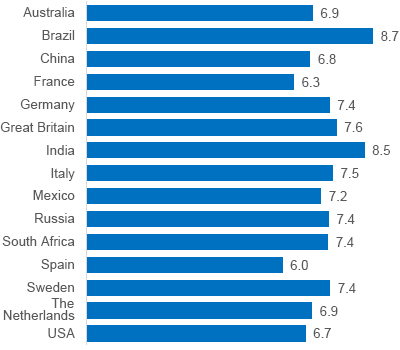
Q: How many times on average would you say you wash your hands in a normal day?
Women: average number of times per day
Global avg.: 9.6
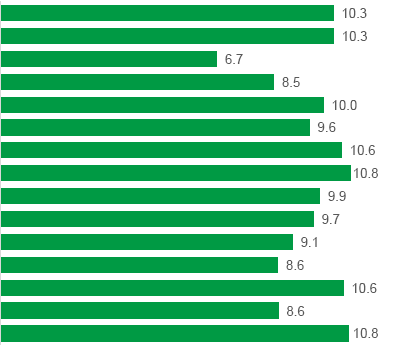
Politicians around the world under pressure to increase focus on hygiene issues
Improving HygienePoliticians and decision makers in India, China, Brazil and Mexico are under most pressure from their citizens to increase focus on and improve hygiene.
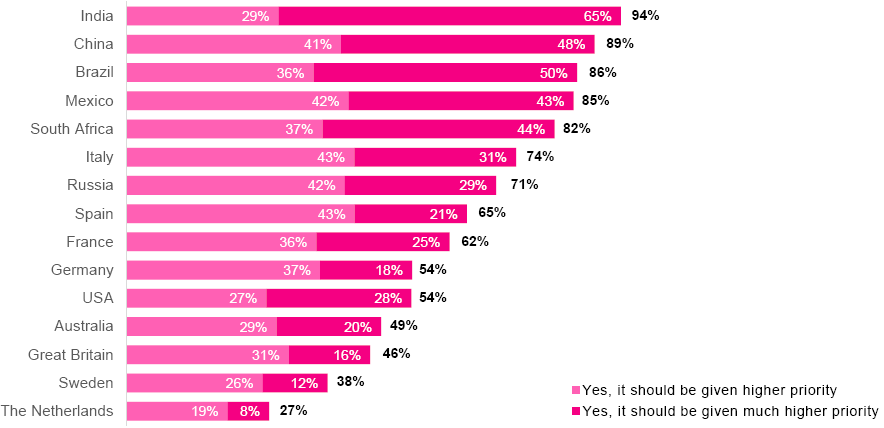
Q: Do you believe that hygiene issues should be given higher priority where you live by politicians and decision makers?
9 in 10 respondents from these countries want their leaders to put more focus on hygiene issues

Time to put insights into actions
Most people see greater individual responsibility as key to improve public hygiene
Improving HygieneMore individual responsibility and improved standards in public toilets is what most people globally believe are keys to improving hygiene standards in society.
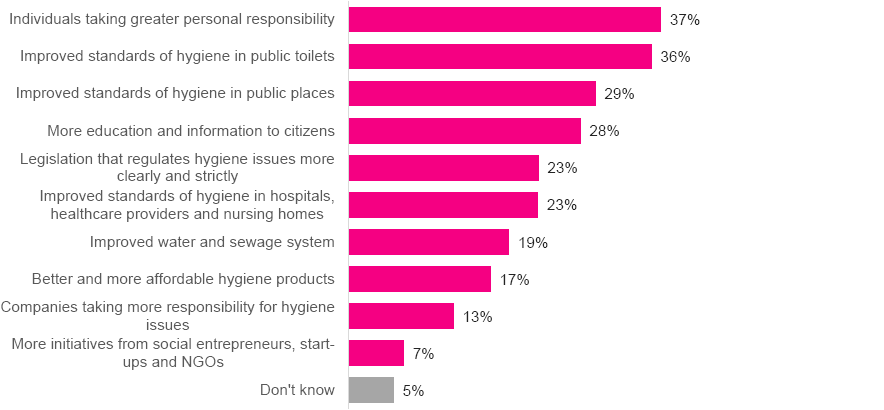
Q: What measures do you think would make the greatest difference in raising standards of hygiene and improving peoples' health in the country where you live?
Personal well-being – key to public progress
Almost half of all women feel uncomfortable around other people during their period
MenstruationAn issue like a visible skin rash is what most people feel would make them uncomfortable around other people (74%).
For nearly half of all women (49%), having their period makes them feel uncomfortable around other people.
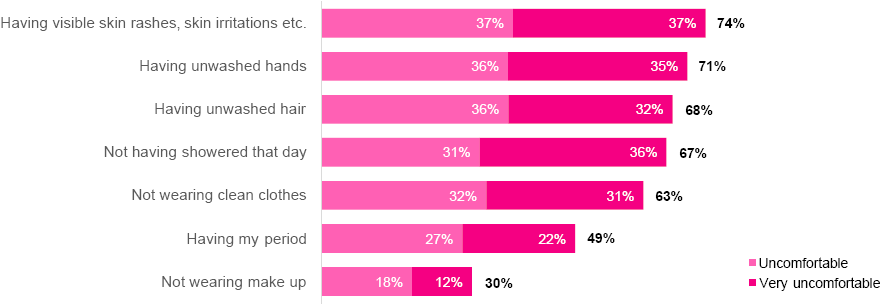
Q: To what extent would the following make you feel uncomfortable in a social situation?
Period heroes
Social discomfort during menstruation is particularly widespread in some markets
MenstruationIn some markets, as many as 2 in 3 women feel uncomfortable during their period
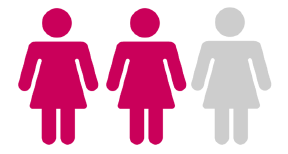
In China, Mexico, India and Brazil, two thirds of women feel uncomfortable around other people during their period.
In Sweden, the country with the lowest share, having their period is still a stigma for almost 3 out of 10 women.
Q: To what extent would the following make you feel uncomfortable in a social situation? “HAVING MY PERIOD”
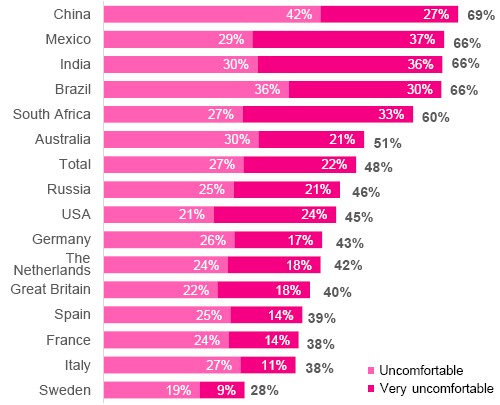
Empowering women by making their needs count
Mothers are the primary speaking partner to daughters about menstruation
MenstruationMothers
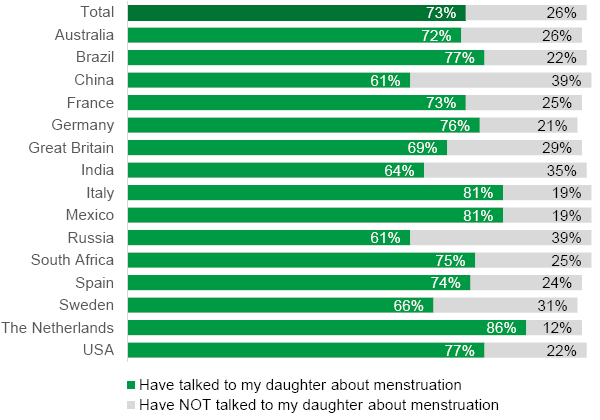
Globally, it’s almost twice as common for mothers (73%) to talk to their daughters about menstruation as it is for fathers (40%).
Fathers
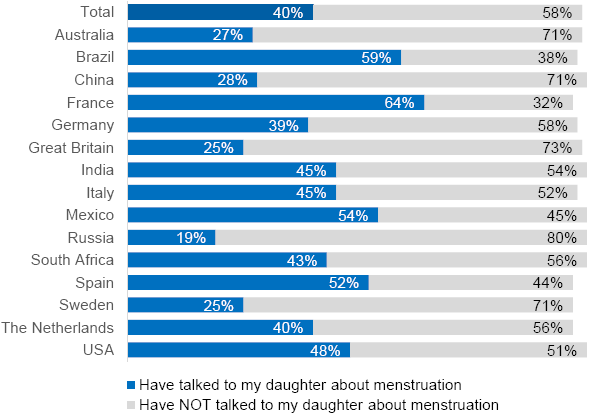
Q: Have you ever talked about matters connected to menstruation with your daughter(s)?
*Share of answers “Don’t know” are not shown
Menstrual hygiene management education – the earlier, the better
Menstruation – a “women only” topic?
MenstruationOnce girls have had their first period, there doesn’t seem to be ONE common reason that’s holding mothers back from talking to their daughters about menstruation.
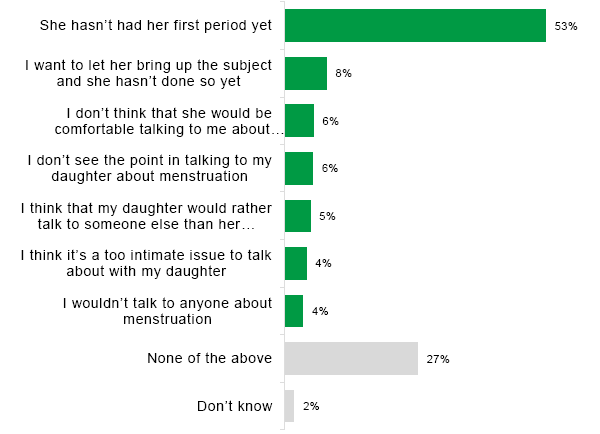
Q: What are the main reasons that you haven’t talked about matters connected to menstruation with your daughter? Filter: Have one or more daughter(s), Not talked to daughter about menstruation
Among fathers however, it’s clear that many feel that menstruation is an exclusively female topic to be discussed between mother and daughter and that their daughters simply wouldn’t be comfortable talking to them about it.
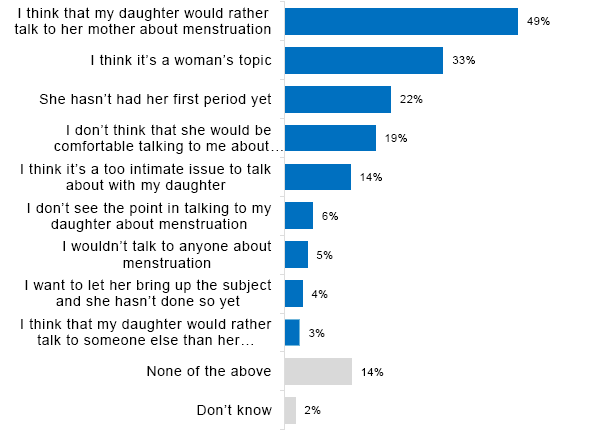
Transforming the conversations about menstruation
A majority don’t know anyone who has told them that they have experienced incontinence
Incontinence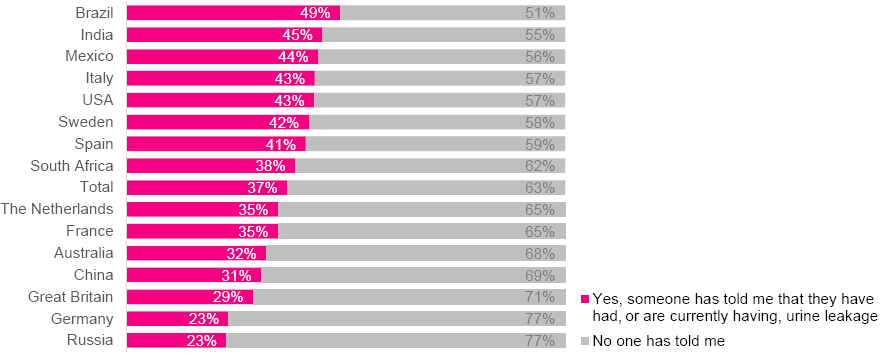
Q: Do you, among your family, relatives and friends know people that have told you that they have had, or are currently having, urine leakage?
Living well with incontinence
More common for women to share their experience of incontinence
IncontinenceShare who knows a woman who have had, or are currently having incontinence
Global avg.: 30%
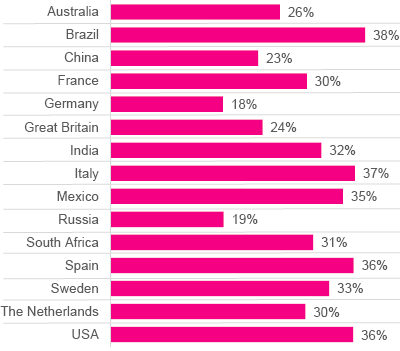
3 in 10 know a woman who have had or are currently having urine leakage compared to 1 in 10 who knows a man.
Share who knows a man who have had, or are currently having incontinence
Global avg.: 10%
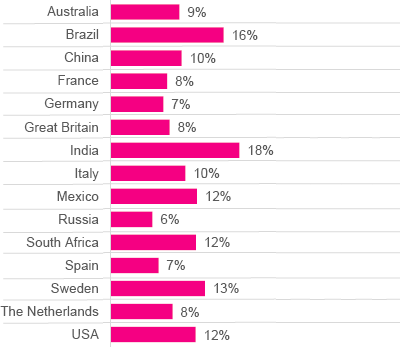
Q: Do you, among your family, relatives and friends know people that have told you that they have had, or are currently having, urine leakage?
People with incontinence should not have to suffer in silence
1 in 5 often refrain from using the toilets where they work
Public Toilets
22%
Often refrain from OR rarely use the toilets where they work
Q: Think about the toilets where you work. How often would you say that you refrain from using them? Filter: Has job
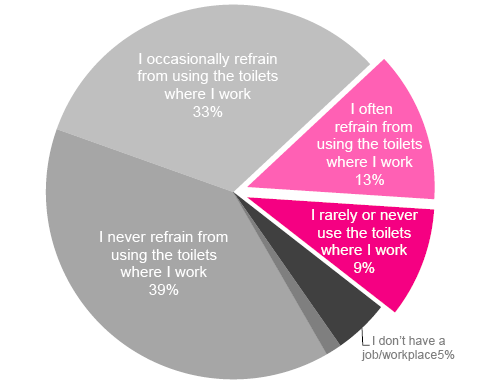
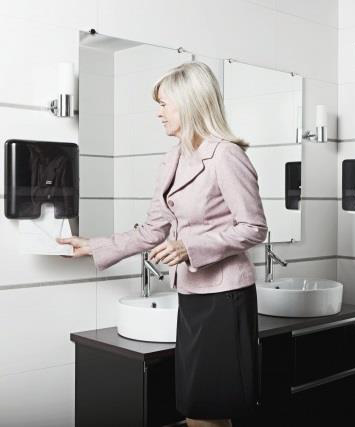
In several markets, more than 1 in 10 never use the toilets where they work
Public ToiletsMexico stands out as the country where most people refrain from using the toilets at work. Although the scope of the problem varies between countries, it is obvious that far from everyone feel comfortable using the toilets where they work.
Q: Think about the toilets where you work. How often would you say that you refrain from using them? Filter: Has job
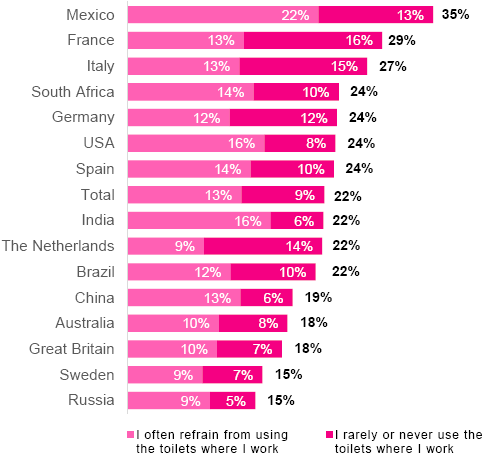
Championing policy change in West and Central Africa
Unhygienic and/or messy toilets the main reason for not using the toilets at work
Public Toilets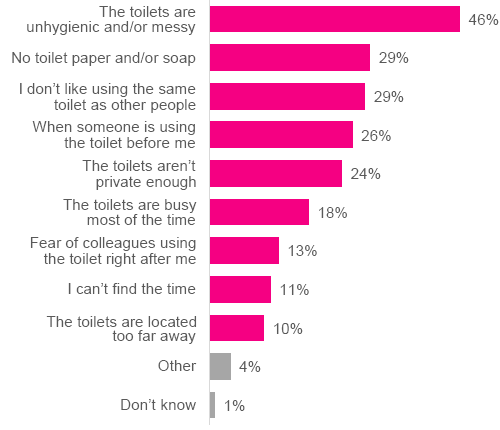
Q: What would you say are the main reasons for you not using the toilets where you work? Filter: Not using toilets at work
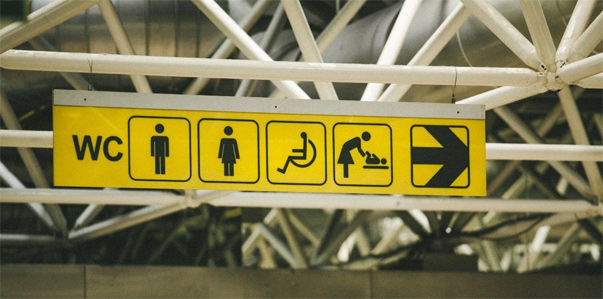
A majority of parents say that their children refrain from using school toilets at least weekly
Public Toilets
54%
Of parents (of children <18yrs) say their children refrain from using toilets in schools on a weekly basis or more often
Q: Now we’d like you to think about how your child(ren) feels about the toilets in their school. How often would you say that they refrain from using the toilets at school? Filter: Children under 18
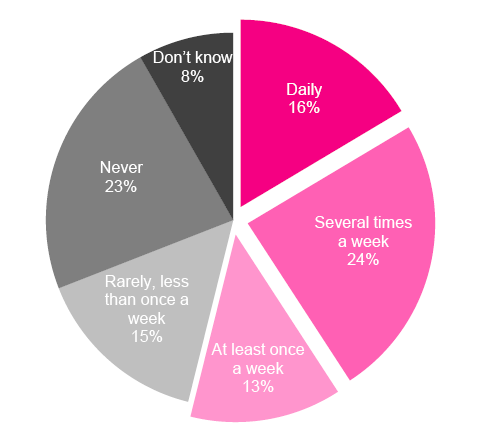
Ensuring a good foundation for the next generation
Unhygienic conditions and lack of products the main perceived barriers to using school toilets
Public ToiletsA majority of parents perceive the general conditions of school toilets to be the main barrier for their children. This is twice as common to be perceived as a main barrier compared to crowded toilets and lack of privacy.
Q: And what, in your opinion, are the main reasons that your child doesn’t use the toilets at school? Filter: Children refrain from using toilets at school
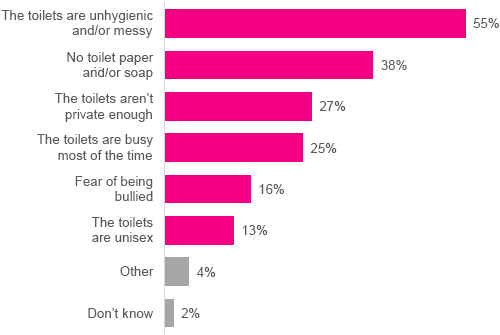
Ensuring a good foundation for the next generation
Mixed opinions about what measures should be taken to combat antibiotics resistance
Antibiotics ResistanceInternational discussions on how to combat antibiotics resistance cover efforts within three main areas; more research, restricting use of antibiotics and preventing the spread of infections to minimize the need for antibiotics.
Preventive measures, i.e. efforts to prevent the spread of infections, have been by labeled by the WHO as a “best buy”(most cost efficient) in combating antibiotics resistance.
Effective and innovative hygiene products and solutions, and accessible and correct information are essential parts of any preventive efforts that aim to stop the spread of infection and minimize the need for antibiotics.
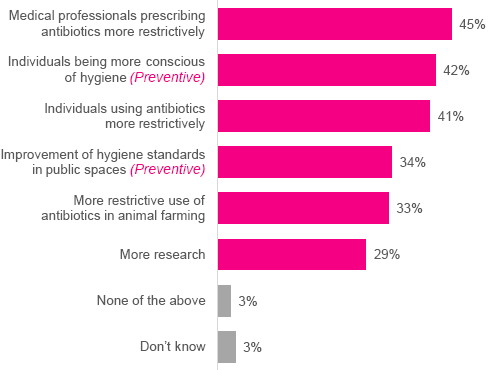
Q: What of the following do you think would make the biggest difference in helping to stop the spread of resistance to antibiotics (i.e. multi-resistant bacteria) where you live?




